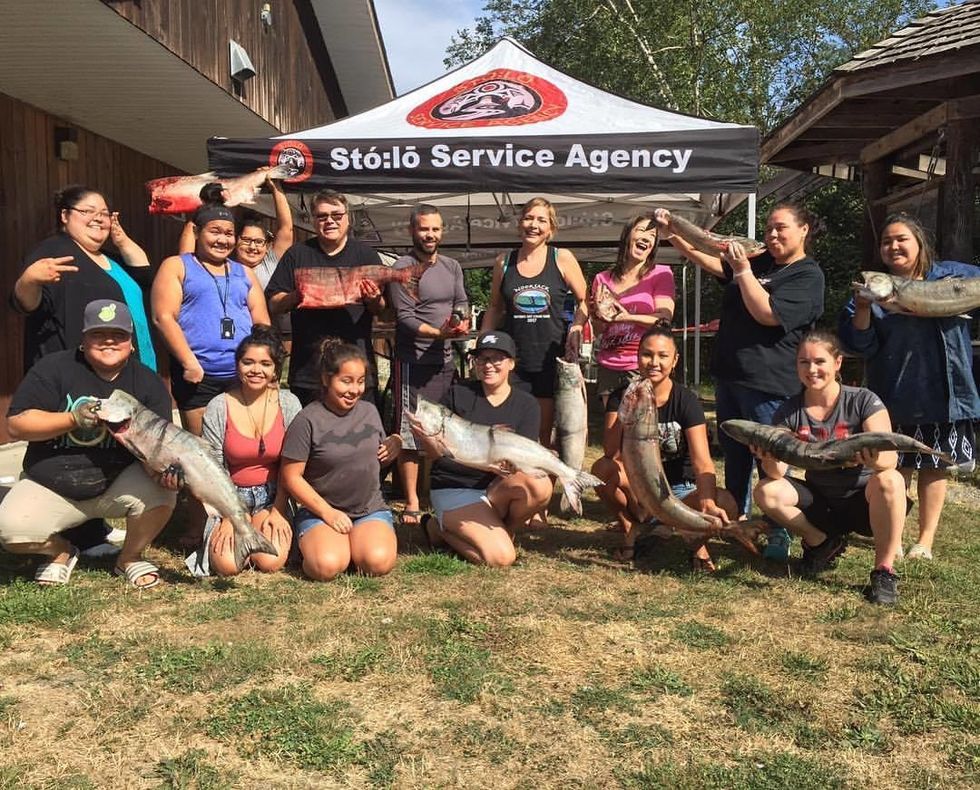In the context of indigenous people in B.C. Canada's Stó:lō Nation, poverty, and food security is an issue. But the funny story is that people who lived in the docks weren't allowed to eat fish, so they ate it raw because they'd get arrested if they took it home. However, they were allowed to sell it to commercial fishermen. The company bought it for three cents a pound and sold it back to them for ninety-three cents a pound. Then, they couldn't afford to buy it back, which made them poor.
They fished anyway, they called it "night-fishing." Anything but stealing. It was their fish so they sued Canada for it and they won, but that didn't change anything because they still weren't allowed to fish. A method they used was to still fish even if they got arrested because if they did get arrested Canada would've paid for their food, feed their family and pay for the courts. If the indigenous people were to take action against this issue they'd have pay for the court case, pay for the documents, and the only thing they cannot do is prove ownership by British law. Which is better?
So they fished because they knew that Canada would be afraid to take action because they cannot prove ownership by the law of the fish in their reservation. Lots of these natives got arrested, and eventually, they gave up in B.C.
The land is an issue. Here's the story. Canada only owns the reservation, which is .002% of the land. Natives own the country and nobody is doing anything. The first law is to feed your family no matter what in native lands, you have to obey the law. Take care of the waters the land, take care of the women and take care of the fish. When the river in the Stó:lō Nation carried less than 10,000 fish, they didn't take a single fish. Canada, on the other hand, still fished. These people know their laws. According to the UN, there are 370 million indigenous people in 70 different countries living in poverty, they don't have enough food, they are abused for culture for land and their women are raped in murdered all over. These people are not seen as people with knowledge, which is a complete farce because these people know exactly what is happening in their nation.
Going onto the food security issue in B.C. and in North America, we waste more food than the rest of the world consumes, so food shouldn't be an issue for people here. Food security in the Stó:lō Nation is caused by the Canadian government and their way of "putting aside" method of solving issues doesn't help anyone, especially the natives of this land.
In conclusion, these issues along with many more need to be talked about and taken action to prevent them from continuing on being issues, in the Stó:lō and in other nations around the world.



















